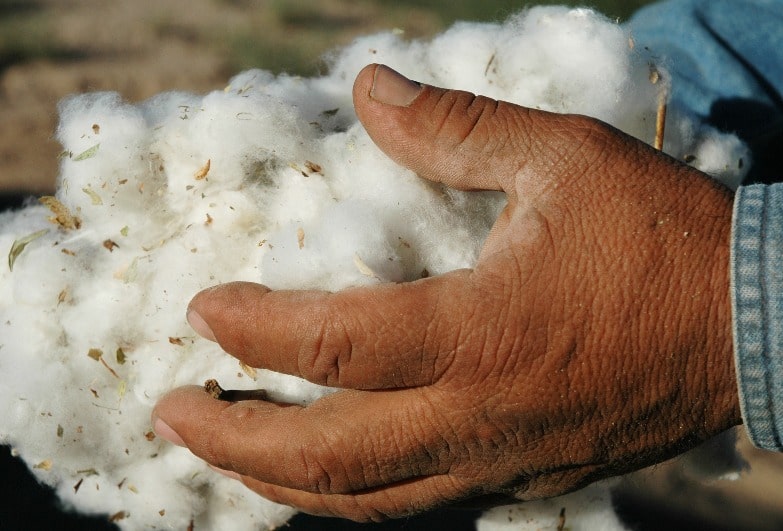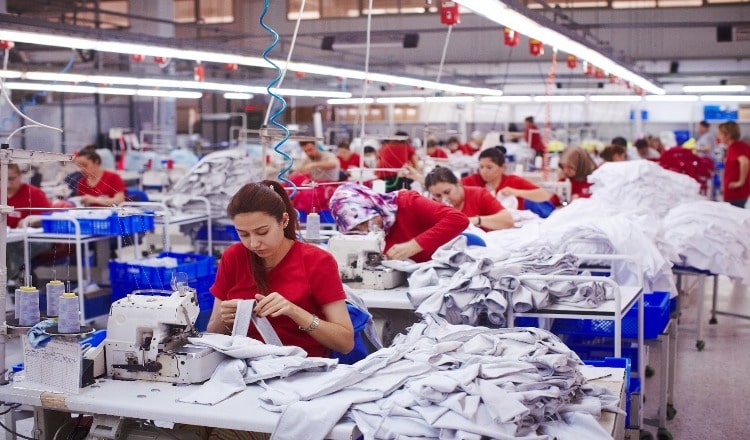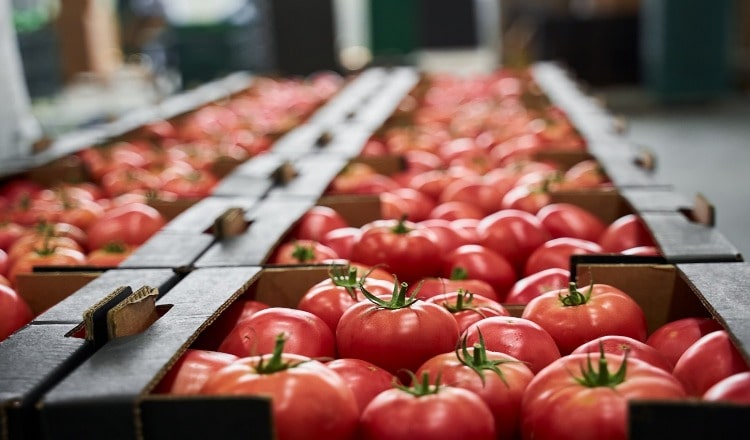
What is state-imposed forced labour?
State-imposed forced labour takes place when national or local authorities force citizens to work, where people have not offered themselves voluntarily.
In 2022, the ILO and Walk Free estimated that almost 4 million people are in state-imposed forced labour, taking place in 17 countries around the world. State-imposed forced labour is defined in international standards (under ILO Convention 105.)
What is state-imposed forced labour?
Every government has a duty to protect its citizens. But in some parts of the world, that very institution is violating their human rights. State-imposed forced labour is when governments force their citizens to work, for example, as a method to mobilise labour for economic development, to punish political dissents, or to discriminate against religious and ethnic minorities.
It can also include the exploitation of conscripts and forms of prison labour. Forced prison labour occurs in a number of countries around the world, including China, the USA, Eritrea and North Korea, and others. All people deserve to be protected from modern slavery, and this of course includes incarcerated people. Often forced prison labour can also be of those arbitrary detained, by their governments for political and ethnic reasons.
In many cases, state-imposed forced labour can link to our global supply chains, for example, governments forcing their citizens to pick cotton – which is used to make clothes and textiles sold around the world – and examples of forced prison labour in furniture making.
Our work to end state-imposed forced labour
Anti-Slavery International has worked on cases of systemic state-imposed forced labour for well over a decade. Today, we focus on ending state-imposed forced labour in Turkmenistan and the Xinjiang Uyghur Autonomous Region.
Our work to end state-imposed forced labour began with a focus on Uzbekistan. For over 15 years, we worked tirelessly with the Cotton Campaign, a coalition of international human and labour rights NGOs, independent trade unions, brand and retail associations and others, to end state-imposed forced labour in the cotton industry in Uzbekistan. In March 2022, in a historic achievement, we celebrated the end of state-imposed forced labour in Uzkebistan.
We now continue to work with the Cotton Campaign to end state-imposed forced labour in the cotton industry in Turkmenistan, as well as to continue to call for wider reform to uphold labour and human rights in Uzbekistan.
In July 2020, Anti-Slavery International co-founded the Coalition to End Forced Labour in the Uyghur Region, a coalition of Uyghur rights, human rights and labour organisations, trade unions and investors.
Overall, we demand that governments end the systematic persecution of people – of which forced labour can form part. As part of our campaigns, we advocate for the use of laws and sanctions which put pressure on the perpetrating governments of state-imposed forced labour, to end the systems of abuse.
Our work in Turkmenistan

Every year, the Turkmen government sends thousands of people from both the public and private sectors into the cotton fields, including key workers such as teachers, doctors and nurses. These people are forced to leave their daily jobs to harvest cotton, or to pay money to hire pickers to replace them.
The state often imposes quotas on cotton picking, and those who fail to meet their quotas face harassment from the authorities, and risk losing their jobs. The work is strenuous and requires great physical effort. Working and living conditions in the fields are terrible, and the work often exposes cotton pickers to serious health risks. Sometimes children are forced to go cotton-picking in their family units or to replace their parents.
The government of Turkmenistan firmly restricts all fundamental rights and freedoms, including the freedom of association, expression and religion. Activists and independent journalists critical of the government face intimidation, harassment, physical attacks and imprisonment. This means that many of the most prominent human rights defenders must work from exile.
Anti-Slavery International’s partners Turkmen.news and the Turkmen Initiative for Human Rights, some of the only independent civil society organisations covering Turkmenistan, work through local networks to undertake their key work to expose Turkmenistan’s forced labour in the cotton sector, among other pieces of work on human rights in the country. This on-the-ground monitoring is extremely difficult, and puts monitors at great personal risk, meaning that organisations must work with utmost care to never disclose their networks.
Despite global and persisting efforts by civil society organisations and international bodies, the Turkmen authorities continue to deny the use of forced labour in the cotton harvest.
Our work to end Uyghur forced labour

The government of China is perpetrating mass human rights abuses against Uyghur and other Turkic and Muslim majority-peoples in the Xinjiang Uyghur Autonomous Region in North-Western China, known to many of its local people as East Turkistan. These abuses include forced labour, mass surveillance, arbitrary detention, rape, torture, political ‘re-education’ and forced sterilisations. The Chinese Government is targeting these native people of the Uyghur Region based on their ethnicity and religion. Human rights and legal experts and some governments have determined these abuses crimes against humanity and genocide.
Systematic forced labour systems are central to, and enabling of, the Chinese Government’s control over the Uyghur Region and its citizens – as part of its objective to remove Uyghur people’s identity. The forced labour schemes have been perpetrated through a number of schemes, including forced labour of internment camp detainees, prison labour, and state-sponsored labour transfers. It is estimated that 1 million to 1.8 million Uyghurs and other Turkic and Muslim people have been held in mass arbitrary detention in internment camps.
Overall, Uyghurs are forced to work in the Uyghur Region and across China in factories that produce goods sold all over the world.
Many global industries are at risk of profiteering from Uyghur forced labour, due to the Uyghur Region and China’s position as global manufacturing hubs. The global fashion industry and global solar industries are particularly high risk. Around 20% of the world’s cotton and 35% of the world’s solar-grade polysilicon (the main material used in solar panels) supply comes from the Uyghur Region. Other sectors at risk include, agriculture, particularly tomatoes, electronics and industries using paper pulp.
Given the severity of the issue, in 2020, Anti-Slavery International co-founded the Coalition to End Forced Labour in the Uyghur Region. We call on leading companies and financial institutions to make sure that they are not supporting or benefiting from Uyghur forced labour. The Coalition also calls on national governments and international bodies to use all possible legislative and policy measures to put pressure on the Chinese Government to end its persecution of Uyghurs.
Our approach

We work with the Cotton Campaign on Turkmenistan and the Coalition to End Forced Labour in the Uyghur Region to call for an end to these practices.
We focus on:
- Raising awareness of the abuses and their links to global supply chains;
- Calling on companies to sever all links with Turkmen cotton, by joining the Turkmen Cotton Pledge, and with Uyghur forced labour, by committing to our Call to Action;
- Calling on national governments to introduce and strengthen laws which ban the trade of forced labour goods, and which mandate companies to take meaningful steps to remove forced labour from their supply chains;
- Working with international bodies like the ILO, OECD and UN to use their mechanisms to put pressure on the perpetrating governments to end state-imposed forced labour.
Success in Uzbekistan
In March 2022, together with the Cotton Campaign, we celebrated the historic achievement of the elimination of systematic state-imposed forced labour in the 2021 Uzbek Cotton harvest.
For more than a decade, the international community, including the Cotton Campaign, brands and international bodies such as the ILO, have been monitoring the situation and putting pressure on the Uzbek Government to end their state-imposed forced labour practices. When the Cotton Campaign launched in 2007, the Uzbek Government was forcing over 1 million children and adults, including medical staff, public sector employees and students, to pick cotton every year during the harvest.
At Anti-Slavery International, we raised awareness of the abuses and our supporters campaigned to encourage brands to sign the Cotton Pledge. We also advocated at governmental, UN and ILO levels to put pressure on the Uzbek Government to end its forced labour system. None of this work would have been possible without the brave work of Uzbek civil society, human rights activists, and labour monitors, who worked at the risk of harsh retaliation by the Uzbek Government.
Now with the elimination of systematic state-imposed forced labour, the Cotton Campaign’s call to boycott Uzbek cotton has ended. International companies now have the opportunity to support responsible sourcing of cotton and textiles from Uzbekistan.
Together with peer organisations, we are now:
- Calling on brands to join the Framework for Responsible Sourcing which will allow international companies, cotton clusters, and labour organisations to work collaboratively and at scale, to establish and maintain decent work principles and practices in the Uzbek textile industry when sourcing from the country.
- Calling on the Uzbek Government to protect and respect the rights and freedoms of all their workers and introduce further reform so that these new measures are sustainable.
Find out more about the latest updates on Uzbekistan here.